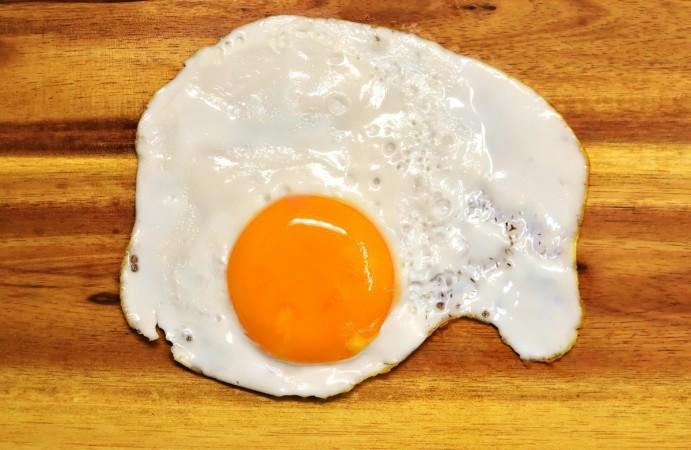
In less than 100 days after a global study revealed how eggs can reduce cardiovascular disease in humans, here is another reiterating an old decades-old belief that egg yolk contains higher levels of cholesterol and hence it increases the chances of heart disease and early death.
Recently, egg lobby has made it visible to many people with a series of studies supporting the Eat-egg-daily campaign, giving numerous studies and data to support their contention. But countering their studies, frequent findings of the ill-effects of egg, especially its cholesterol yolk have made the headlines, compounding the confusion whether to eat egg or not.
Another pertinent question is whether to eat daily or as rarely as possible in a month. The puzzle before people and medical doctors remains as uncomfortable to answer as it is to advise now. The latest study to trigger confusion was published in the journal JAMA.
Egg yolks contain very high cholesterol among all daily consumed foods at 186 milligrams each and the researchers have pooled data of 29,615 racial ethinic diverse populations to understand how eating dietary cholesterol or eggs were linked to cardiovascular disease and death.
Eating 300 mg of dietary cholesterol per day was associated with 17 per cent higher risk of incident cardiovascular disease and 18 per cent higher risk of all-cause deaths. Eating three to four eggs per week was linked with 6 per cent higher risk of cardiovascular disease and 8 per cent higher risk of any cause of death.
Those who reduced their daily intake of eggs recorded decreased risks of heart diseases, said researchers, advising people to keep dietary cholesterol intake low by reducing cholesterol-rich foods such as eggs and red meat in their diet.
The finding goes against the established studies in the past which showed that eating eggs did not raise the risk of cardiovascular disease. But those studies had a less diverse sample, shorter follow-up time and limited ability to adjust for other parts of the diet, argue the researchers.
"Our study showed if two people had exact same diet and the only difference in diet was eggs, then you could directly measure the effect of the egg consumption on heart disease. Regardless of the source, we found cholesterol was associated with an increased risk of heart disease." said study author Norrina Allen.

Each participant was questioned on what they'd eaten for the previous year or month and the data was collected in the first visit. When the followed it up for 31 years, 5,400 cardiovascular events and 6,132 all-cause deaths were recorded. However, the study did not assess the long term eating patterns of the participants. "We have one snapshot of what their eating pattern looked like. But we think they represent an estimate of a person's dietary intake. Still, people may have changed their diet, and we can't account for that," said Allen.
Besides cholesterol, eggs also contain high-quality protein, many vitamins and bioactive components such as phospholipids and carotenoids. Another recent study found that people who consume 18 grams of protein from egg whites after engaging in exercise differ dramatically in how their muscles build protein, a process called protein synthesis, during the post-workout period.
The discovery, reported in the American Journal of Clinical Nutrition, suggests egg yolks maximize one's dietary protein intake, said Nicholas Burd, a University of Illinois professor of kinesiology and community health who led the past research.

















